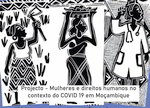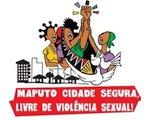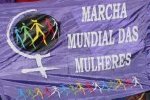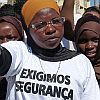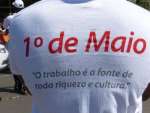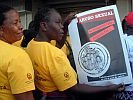May 23 International Day to End Obstetric Fistula
Every day, almost 800 women die from pregnancy complications. For every woman who dies, 20 or more are injured or disabled. One of the most serious injuries of childbearing is obstetric fistula, a hole in the birth canal, caused by prolonged, obstructed labour due to lack of timely and adequate medical care.
On May 23, UNFPA will be marking the annual International Day to End Obstetric Fistula, designated by the United Nations General Assembly.
The occasion is to reflect on progress made, as well as to raise awareness and generate new political and financial support to accelerate the efforts of the Campaign to End Fistula, which is urgently needed to address this severely neglected health and human rights tragedy.
As a result of prolonged, obstructed labour, in most cases, the baby is stillborn or dies within the first week of birth, and the woman suffers a devastating injury — a fistula — that leaves her incontinent. The consequences of this injury more often leave her ashamed, ostracised and marginalized. Many women and girls who suffer from fistula are excluded from daily community life and abandoned by their husbands and families, isolating them socially and emotionally, making it also difficult to maintain a source of income or support, thus deepening their poverty and magnifying their suffering.
The survivors of obstetric fistula are women and girls, usually poor, often illiterate, who have limited access to health services, including maternal and reproductive health care.
The persistence of obstetric fistula reflects broader health inequities and health-care system constraints, as well as wider challenges facing women and girls, such as poverty, gender inequality, lack of schooling, child marriage and early child bearing, all of which impede the well-being of and opportunities for women and girls.
Obstetric fistula has been virtually eliminated in industrialised nations, but in the developing world it is estimated that more than 2 million women and girls are still living with the condition. However, obstetric fistula is preventable and, in most cases, can be surgically repaired.
UNFPA Pakistan will be holding press conferences in Lahore, Karachi, Peshawar and Islamabad today (Thursday) to highlight the issue.







 Information in English
Information in English